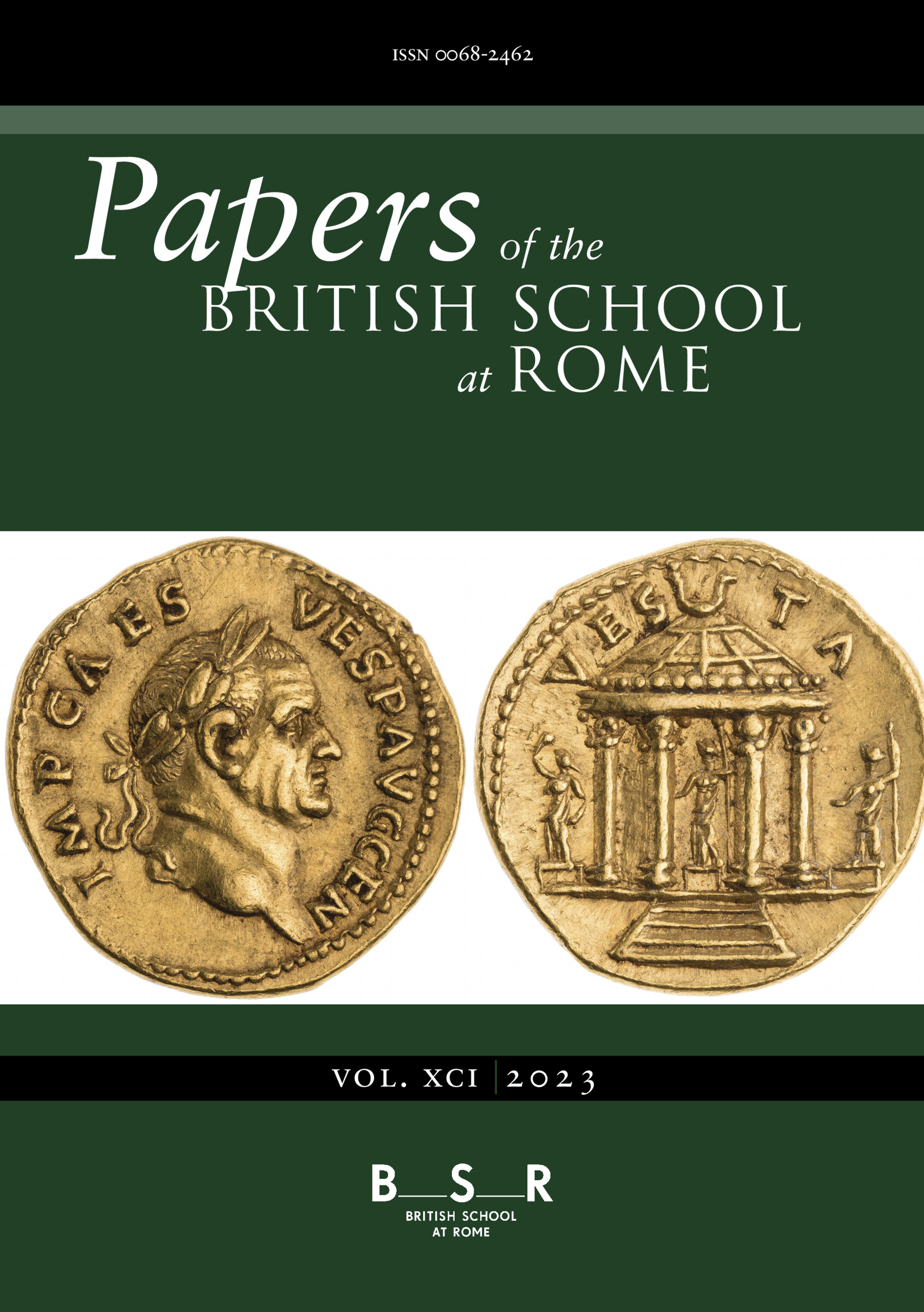I had written my PhD (King's College London, 2019) on the ideological uses of ancient Roman imperialism in the context of modern Italy's imperial endeavours in Africa (broadly from 1861 to 1945) and, returning to my thesis as I began to prepare it for publication as a monograph, became aware of some major gaps in the narrative that I had constructed during my doctoral work. I therefore came to Rome to take up an award at the BSR with four key aims in mind.
Firstly, I wanted to learn more about the role of the British School and the other international research institutions within this context of classicizing ideologies of Italian imperialism. Secondly, I hoped to investigate how secular uses of antiquity interacted with Catholic ones, both before and after the Lateran Pacts of 1929. Thirdly, I aimed to explore more fully the voices oppositional to hegemonic and imperialistic uses of classical antiquity, both within the academy, but also from non-specialist spheres. Finally, I aimed to disentangle some elements of the postcolonial, post-Fascist histories of the various exhibitions staged in Italy in celebration of both Roman antiquity and Italian imperialism.
I began by focusing on the BSR's own archives, which were amazingly informative for my aims of investigating the role of the international schools within the context of Italian imperial classicisms, and in terms of the histories of the Roman and colonial exhibitions staged in Italy during my period. The Eugenie Strong archives were in equal parts useful, perplexing and amusing. I was especially struck by a letter that she had written to excuse her absence from a colleague's lecture, citing, nonchalantly, the death of a maid that evening as the reason. The tone of this excuse, I thought, revealed a fair bit about the character of this formidable scholar and important figure for the history of the School. Similarly revealing was a letter in which she recused herself from serving on the committee, formed in the Fascist period, to promote the uses of Latin in scholarly contexts, in which she claims that her Latin was not good enough to have a valid say in matters. I was able to construct a much fuller picture of Strong's relationships with key figures of Italian classics, and, through casual notes, letters, and annotations, catch a glimpse of her personal, and by dint of her importance the BSR's institutional, attitudes towards Italian imperial classical discourses and endeavours.
Similarly invaluable were the archives of the Monuments, Fine Arts and Archives programme housed at the BSR. The inventories of items from the various exhibitions staged in Italy shortly before the Second World War, and recovered by Allied forces towards the end of the war, were illuminating for what they were unable to account for. Countless antiquities and artefacts had been brought to Italy from its African colonies, with very little information about provenance, complicating the return of colonial loot to its places of origin. Such issues have become increasingly prominent in international conversations around decolonization. Being in Rome also allowed me to meet curators at the Museo delle Civiltà who are in the process of making accessible the collections of the former Museo Coloniale, and are rethinking the framing of the collections to educate the public on the legacies of Italian imperialism.
Three months was not enough time. The community of the BSR, its resources and its location made it an ideal venue for this research, but, owing to the intellectual richness of the School and the city itself, for every research objective met, several more were formulated. Fruitful detours were made from my original plan, meaning that I will just have to return in the near future. I am sincerely grateful to the BSR and its staff, as well as my fellow award-holders, for such a collegial, stimulating and genuinely interdisciplinary environment.


